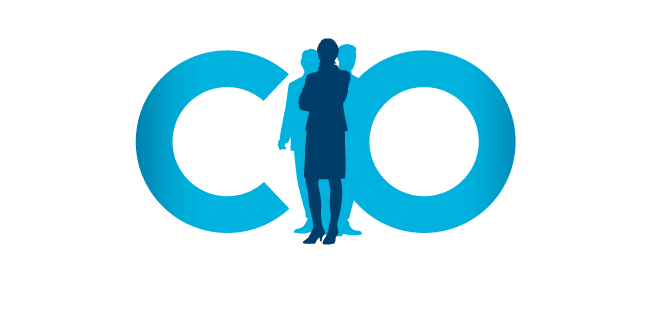Hey, We Are Employees Too! (Why Is There a Resentment for IT Pros?)
In the company I’m working in and the companies I’m providing consultancy services, I always feel a little bitterness both from the management and from the end users. I can safely say that government tax officials are more welcome than myself, no matter how I behave or what I wear. Really, am I the only one feeling like this? No. I have spoken this issue with many colleagues and they admitted that they feel the same when they leave their inn and join other employees. It seems that non-IT personnel simply sees us as people that do not belong to where they belong. It seems like we are not considered as yet another employee; say an accountant’s first impression on a marketing person is way positive compared to the impression on an IT person.
The IT pro image on people’s minds are shaped with the 80’s/90’s movies, where geeks are sitting in a dark rooms in front of monitors(green text over black background), typing commands furiously in incomprehensible languages and breaking into systems, fueled by coke/beer and potato chips/pizza. This image still keeps. No matter what an IT pro becomes, no suit or business jargon can erase this image. We are bunch of geeks hiding our secret craft from the mere mortals, speaking in a sci-fi language. I doesn’t matter if we sit down in the same cafeteria, eat the same meals, use the same public transports, we are incommunicable geeks.
This image is complicated further by the fact that almost all of the world’s businesses depend on information technologies and IT pros are the side effect. Even if you are running a one-person shop, you still need a computer somewhere to perform some tasks and you need an IT pro to keep your computer up and running and to keep your data safe. On the other hand, IT pros are generally types that do not want to rely on somebody else. This creates a one-way relationship and causes avoidance on the non-IT side at the very best.
RELATED: Can Printed Money Be Replaced by Digital Payments?
The reliance on IT pros, especially in terms of data, no doubt gives IT pros the power. In an enterprise all the databases, personal and shared files, emails, archives, backups are managed by the IT department. It is the IT department who accesses and controls such data. This access to and control of the data and the information is unparallelled in the enterprise. Knowledge is power and IT controls it. That makes IT too big and too intrusive.
IT professionals are also seen as a threat to employees’ jobs. It is the IT pro who disables a person’s account when his employee contract is terminated. This makes people see the IT pros as the one who terminates their job while the truth is IT pro is no different than a human resources personnel who sign the termination papers. The other departments involved in the termination process – the boss, manager, human resources, personnel, security – are not blamed as much as IT.
The expectations from the IT professionals are sometimes much more than any expectation placed on any other profession. The ultimate expectation is an immediate resolution of an impossible problem. And this happens daily, a couple of times. A secretary’s broken down computer has to be repaired ASAP. It does not matter if you have other support incidents and requests in the queue. It does not matter if you are in the critical stage of a process. That computer needs to be fixed now. No response time is fast.
RELATED: End User Support: Excuses From The Userland
And this support must be provided over the telephone without any diagnosis: “I told you it is not working” is all that an IT pro needs to know to solve the issue. IT Pros are expected to understand and solve the problems over the telephone with the information supplied by a person who has no or little understanding about the issue. As expected, the level of support provided will vary from mediocre to impossible. The support person needs to see the problem, which almost always involves having direct access to customer’s hardware. It does not matter if the support person is well trained, dedicated and persistent. Working with no information is simply not possible. It is interesting to note that no doctor is expected to diagnose a patient over the telephone without seeing him, but people cannot think the same for the IT professionals (including my dad).
Once people realize that you get a hold of gadgets (read: servers, operating systems, access points, switches, remote connections), the line between IT support and personal support diminishes. BYOD has also contributed to this blurring line. Yes, we have to solve your connection issue on your tablet as per the company’s policy but we don’t have to understand why this game crashes from time to time on your shiny new smartphone. On the other hand, the knowledge gap between the customer and the IT pro is widening every day. Once the users knew how to find their ways with their gadgets, now they are “simply tapping it and it is not happening.” Both this gap and the blurry line works against the IT pros’ image.
RELATED: Will Bitcoin Survive in the Mobile Payments Field?
Finally, we are expected to make the impossible. We are expected to provide 24/7/365 support and 24/7/365 availability of the systems. It does not matter if we are operating in a complex environment with different hardware and software vendors, grift application infrastructures and complex equipment. Gmail can be unavailable, that is fine. Outlook.com can be unavailable, fine, you can try a few minutes later. Company’s email system is unavailable? What is the IT people there if they cannot keep the mail server up and running? When will it be fixed? Still they didn’t find out the issue? Bah, they are paid so well but cannot manage a simple email system.
These are our findings about why IT professionals are considered as “the other ones.” Looking at the issues from the other side’s perspective, I cannot say they are at all wrong. My personal experience says these perspectives come to normal when we, the IT pros, have our coffee with the employees on the non-IT side and tell them a little about our problems. Not in an our regular jargon, but in a way that can be understood by everyone. Be sure that the bridges will be built.
Featured Image:




